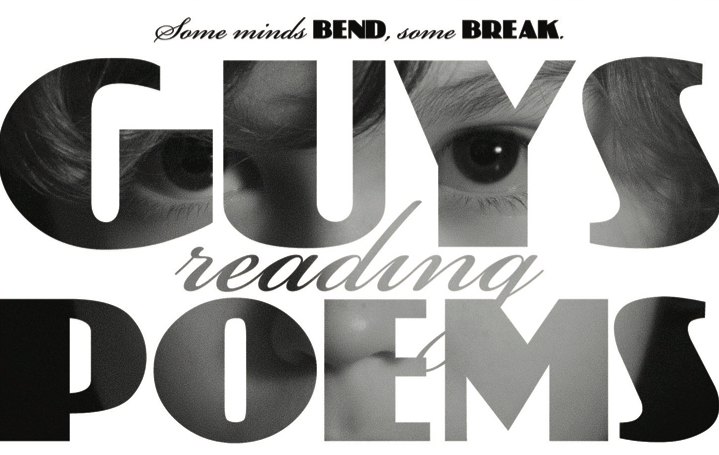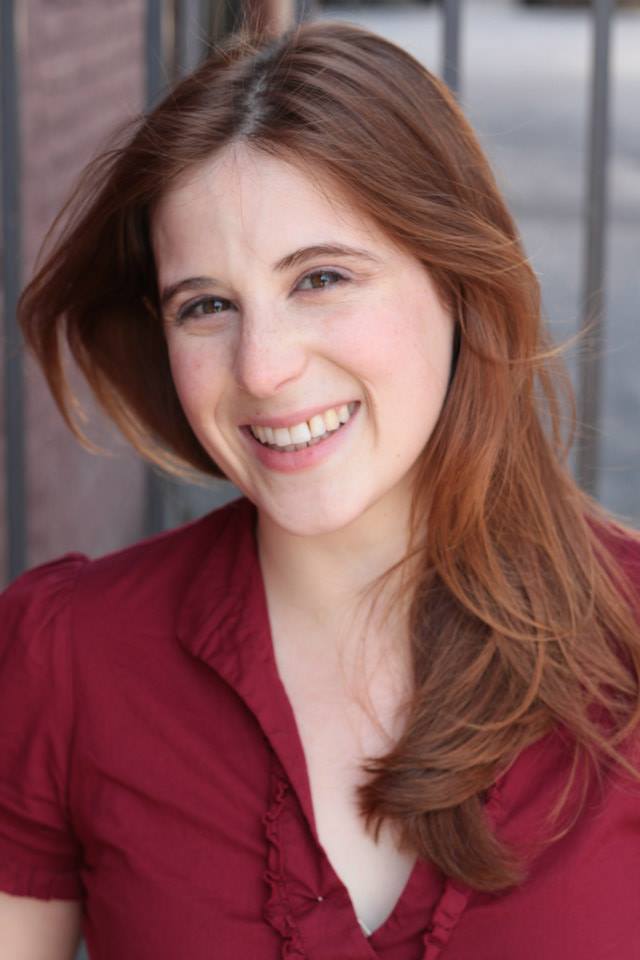Meet Lana Marks, our whip smart, detail-oriented script supervisor on “Guys Reading Poems.” She sat down with director Hunter Lee Hughes to talk about their experience making the film…and her life in general on set in the “department of one.”
Hunter: What made you decide to pursue work as a script supervisor? What about you is a good fit with the job?
Lana: I have been involved in the entertainment industry professionally in some capacity since I was sixteen. I began in theater as an electrician/ technician. A few years later the head of the theater department at my college in Austin said “you’re tiny and neurotic, why don’t you stage manage?” I did that for a very long time. I love theater, but I always knew I wanted to be in film and television. When I moved to L.A. three years ago, I tried to pick up production work on short films as that seemed to be logical jump from “task master stage manager” to “drill sergeant AD.” While on set, I got to understand better the role of the script supervisor. It is an odd position as it is both integral to every department while still remaining very much independent. It marries my compulsion to troubleshoot and problem solve with my desire to be a part of the creative conversation. It is, in fact, closer to the role of a stage manager than the AD ever was so I thought to myself, “I could probably do that job.” Shortly after I enrolled in a training course, completed it quickly and started working on student shorts and web series. It is now my main trade and it’s great.
Hunter: For those who might not be familiar with our business, how would you describe your responsibilities as a script supervisor?
Lana: The script supervisor position is, at the low level, an elusive one. It at once reports to every department but is also an entirely separate entity.
Script supervisor is the continuity department- a department of one. The easiest way to describe it is that I make sure that you pick up that cup in that hand the same way at the same time for each new take and angle. While, yes, that is continuity, but that is not the most fun part. The most fun for me is all the macro continuity – screen direction, eyelines, matching shots, keeping track of the shot list, making sure every scene is covered, and making sure everything still connects after cuts and changes.
At worst, a script supervisor is kind of an on set secretary; taking all the notes, writing all the reports. At best, a script supervisor is a consigliere to the director. We keep track of the technical, so that the director can focus on the creative. We solve problems before they happen. We are useful. Trust us.
Hunter: How did you get involved with “Guys Reading Poems”?
Lana: I began working full time as a script supervisor earlier that summer. I was jumping from project to project on the recommendation of my mentor. He gave me Bradley’s number because “this seems like a cool project for you, but it starts tomorrow so call them now.”
When Bradley picked up the phone the first thing he said was, “Why do you have a ‘914’ number?” I said, “because I am from Sleepy Hollow.” He asked “Are you my script supervisor? You’re from New York, you’re hired!” Fifteen minutes later, I was at the studio meeting everyone, getting the script and beginning the breakdown process. I’m so glad I did.
Hunter: What’s the hardest thing about being a script supervisor and what’s the most fun thing about being a “scripty”? And how do you feel about that nickname anyway?
Lana: The hardest part about being a script supervisor for me is navigating the politics. I am no good at that. I’ve never been good at that. I’m good at many things, tact really wasn’t ever one of them.
The most fun part about being a script supervisor for me is that I get to be at the table, so to speak. When my relationship with the director and DP is strong, I am consulted on most decisions. I love being able to give a director many options of how to solve a problem and have a thoughtful discussion about the pros and cons of each choice. Every day is something new and when it’s good, it’s great.
The scripty nickname is rooted in old school filmmaking. A script supervisor is general thought of as a female position as it was the consolation job for the female filmmakers who wanted to be directors. “Scripty” came from “script girl” to “scripty girl” to “scripty.” The name, along with MANY other generally accepted on set film terms, is basically a misogynistic one. Good AD’s will ask if it’s ok to call me “scripty” and sometimes I don’t mind. Bad AD’s will use it with its intended condescension and even go so far as to list me as part of ‘production’ on the call sheet. Word to the wise- don’t assume it’s ok. Lots of female script supervisors are sensitive to it and it is NOT ok to tell her that “she’s being too sensitive.”
Hunter: Did you have any favorite moment on the job with us at GRP?
Lana: GRP was one of the most fun sets I’ve worked on and it’s a crew that I have and will continue to work with for a long time. There were lots of great moments on the set; sword fighting with Alexander [Dreymon] while G&E were lighting, watching the crew trying to stay behind [Michael Marius] Pessah (our cinematographer) and the camera shooting Alexander and Luke [Judy] by the lake, for example. But if I have to choose, my favorite moment was when I was filmed “vogue-ing” while standing in.
Hunter: I remember that. You are a fantastic “vogue-er.”
Lana: [Cinematographer Michael] Pessah has a habit of playing music during set ups. The musical choices span everything you can think of, including (but not limited to) the time he played the marching band version of “Sexual Healing” as we were walking from one set to another. One of the last days, while setting up for a scene where we see shadows of Alexander and Patricia [Velasquez] in the ‘nursery’ behind a curtain Pessah asked, “Who wants to Vogue?” as the set up was not all that different from Madonna’s iconic music video. I couldn’t resist. He played the song while my shadow danced. I found out later that they were filming. It is one of the only times you’ll ever find me in front of the camera and I am GLAD that is the reason.
Hunter: It was such a fun moment – it was near the end of the shoot too if memory serves and helped energize and inspire the crew that day. Haha. What advice do you have for young people who want to break into the industry as a script supervisor? (And yeah….I looked into our archives and found it. Here it is.)
Lana: There is a lot to learn on the job but being thrown into the position is not the best way to begin. Training is important to understanding the standard practices of the job. The final documents that are handed over stay with a project through distribution. They become legal documents and they need to be done correctly and accurately. There are a few training courses around L.A. and each offers a different perspective. I learned the old school way – on paper, without a monitor – so that when it came time to move up to digital equipment I already had the foundation knowledge. It is a complex job and it is imperative that you learn from the ground up.
Script supervisors have a reputation for being annoying or too hung up on the small stuff. I think it’s important to learn the distinction being relevant and irrelevant continuity. The job is about thinking ahead and learning how to accommodate – to find solutions before they become problems. The job does not need to slow production down.
Hunter: What advice do you have for indie film directors and producers from the script supervisor point of view? Do you see any recurring mistakes?
Lana: Preparation. Preparation. Preparation. By the time a director gets to set they’re only job should be saying “yes” and ‘no.” Hire designers and producers that you trust. Know what you want and what is most important to you. What are you willing to compromise on? What is precious and what can be changed? What are the rules of the world you are creating?
Far too many times I have worked with new directors who did not have a clear vision of what they wanted and that can affect the working environment. Someone has to be in charge and if you don’t do it someone else will, which is unfortunate because it’s your project. Additionally, learning that ” I don’t know” very well might be the best answer as long it’s it’s followed by “give me some options.”
Hunter: Any new project lined up? What is next on the horizon for Lana?
Lana: Primarily, I am just continuing to further my script supervisor career. I am at a point now where I know my strengths and weaknesses and how to improve. I feel better able to assess myself professionally and creatively. I’m union eligible and as soon as I can find an extra six thousand dollars lying around I’ll join and theoretically that will move me forward. Gotta keep grinding. That’s the name of the game. I wouldn’t have it any other way.









